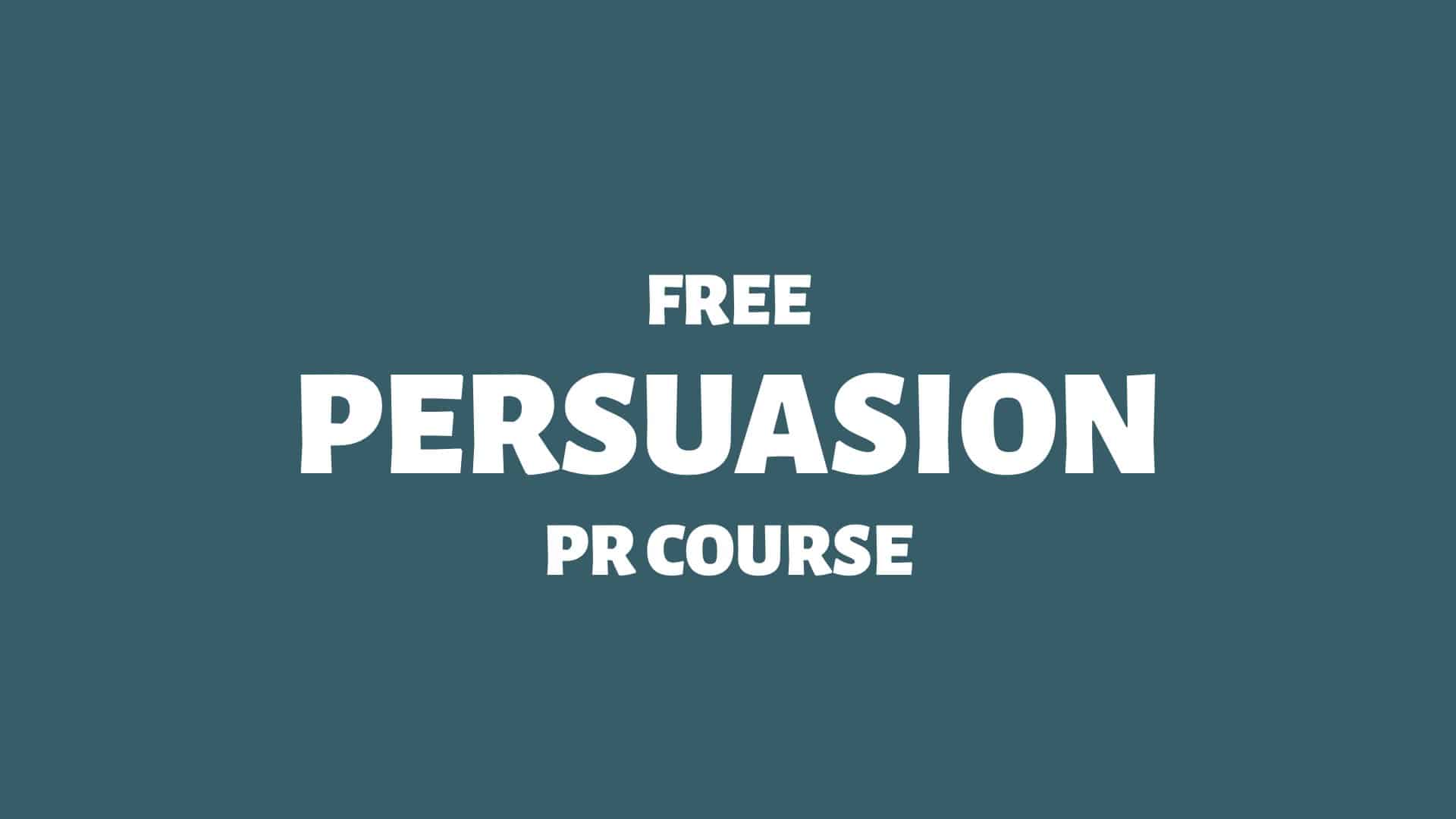Creating artificial scarcity works — but is it ethical?
In my line of work as a spin doctor, I sometimes create artificial scarcity to fulfil my PR objectives. I’m not alone — many communicators and marketers do the same thing.
In this blog article, I will discuss why creating scarcity works, why we use it, and whether or not it is ethical.
Here we go:
The Principle of Scarcity
The principle of scarcity is well-established in scientific literature. If something seems scarce, we anticipate our possible regret of failing to acquire the resource in time:
“In 2 experiments, a total of 200 female undergraduates rated the value and attractiveness of cookies that were either in abundant supply or scarce supply. […] Results indicate that (a) cookies in scarce supply were rated as more desirable than cookies in abundant supply; (b) cookies were rated as more valuable when their supply changed from abundant to scarce than when they were constantly scarce; and © cookies scarce because of high demand were rated higher than cookies that were scarce because of an accident.“
Source: Journal of Personality and Social Psychology 1Worchel, S., Lee, J., & Adewole, A. (1975). Effects of supply and demand on ratings of object value. Journal of Personality and Social Psychology, 32(5), 906 – 914.
We are programmed for survival and will, therefore, a) overvalue items and services that are scarce and b) undervalue those plentifully. 2Silfwer, J. (2016, August 4). FOMO & Digital Trends: You Don’t Have To Catch Them All. Doctor Spin | The PR Blog. https://doctorspin.net/fomo/
Creating artificial scarcity (by limiting availability) is a powerful PR strategy, but to avoid backfiring, the PR professional must refrain from framing the offer using untrue statements.
Learn more: The Power of Artificial Scarcity
Artificial Scarcity
Artificial scarcity: “Only 5 spots left for this exclusive leadership training — sign up now or miss out on this once-in-a-lifetime opportunity!”
Artificial scarcity occurs when a company or individual creates the illusion of a limited supply or urgency to manipulate consumer behaviour, even when the scarcity is not genuinely based on the availability of resources. This tactic often encourages rushed decisions and creates a sense of urgency that may not be justified.
In a business context, artificial scarcity can pressure customers into making hasty decisions, leading to overconsumption, regret, or loss of trust. While it may drive short-term sales or engagement, it can also undermine long-term brand loyalty if consumers feel manipulated or deceived by the false urgency.
To avoid falling into the trap of artificial scarcity, businesses should focus on building trust and providing genuine value rather than relying on psychological manipulation to drive sales.
Transparency, clear communication about product availability, and creating meaningful exclusivity or limited-time offers can help businesses maintain ethical marketing practices while still sustainably generating excitement and demand.
When scarcity is crafted, desire grows not from need but from the illusion that what is limited is somehow more valuable.
Learn more: The Power of Artificial Scarcity
Artificial Scarcity and Public Relations
People tend to act more quickly when they believe that the thing they want is about to disappear. The fear of not having something can drive people to take action when they wouldn’t have otherwise acted.
Our brain releases dopamine in response to a potential reward, which causes our behaviour to be rewarded by the prospect of a new thing. It’s FOMO (fear of missing out).
PR professionals often base their PR strategies on creating artificial scarcity. We know that the more scarce something is, the more people want it.
In a world where everything has become readily available, it isn’t hard to understand why many PR professionals, communicators, and marketers use artificial scarcity as one of their favourite tricks. We apply artificial scarcity in many ways, such as limiting quantities, expiry offers, exclusive stories, and rare occurrences.
I once created an invite-only waiting list for a new streaming service. Your place on the waiting list was partially determined by your number of social followers and the number of followers of the person who invited you. The scarcity of available seats sparked intense anticipation.
The Ethics of Artificial Scarcity
The Principle of Scarcity is an effective motivator because it appeals to people’s instinct to acquire what they perceive as limited. People have an innate desire for things or activities that are scarce.
Creating artificial scarcity can be an effective motivator if appropriately utilised. Is it ethical? I wish I could deny the inherent cynicism that seems to accompany our scarcity bias.
My approach is to use artificial scarcity sparingly.
Example: I could use a countdown timer to get more users to sign up for a specific deal. But I would only use the timer if I were confident that the offer wouldn’t remain or resurface soon after the countdown runs out.
Another way of putting it:
Creating artificial scarcity is okay. But lying never is.

THANKS FOR READING.
Need PR help? Hire me here.

What should you study next?
Spin Academy | Online PR Courses

Spin’s PR School: Free Persuasion PR Course
Use this free Persuasion PR Course to elevate your public relations game with powerful insights. Drive impact and influence like never before.
Persuasion 101
Advanced Persuasion
Propaganda
Learn more: All Free PR Courses
💡 Subscribe and get a free ebook on how to get better PR.

Annotations
| 1 | Worchel, S., Lee, J., & Adewole, A. (1975). Effects of supply and demand on ratings of object value. Journal of Personality and Social Psychology, 32(5), 906 – 914. |
|---|---|
| 2 | Silfwer, J. (2016, August 4). FOMO & Digital Trends: You Don’t Have To Catch Them All. Doctor Spin | The PR Blog. https://doctorspin.net/fomo/ |


